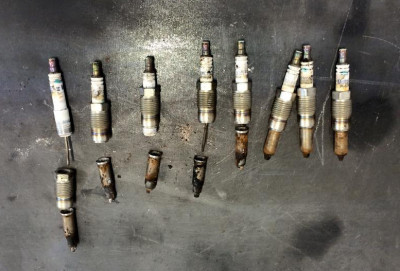When should I get a tune-up?
Depending on your specific vehicle’s recommended service schedule, a tune-up is usually recommended between 30,000 and 100,000 miles. You should always consult your owner’s manual or a trusted automotive technician for the exact recommended mileage for your vehicle.
Why are tune-ups important?
Tune-ups help to ensure that your car or truck will continue to run at its peak performance, which will impact its drivability and ever-important, fuel mileage. Recommended service intervals are determined for each vehicle by mileage points at which things begin to wear or break. Each vehicle is built differently, so parts tend to wear differently. It is important to keep up with regularly scheduled service for safety and to prevent damage.
What happens if I skip the tune-up?
In severe cases, neglected service may cause an engine misfire.
A misfire occurs when the spark plugs, ignition cables, distributor cap and rotor, and ignition coil wear over time and lose their ability to generate and transfer the spark needed to ignite the air/fuel inside the combustion chamber. If left unchecked and undiagnosed, a misfiring engine can cause damage to the catalytic converter(s), which may result in thousands of dollars in repair.

The photo above is from a tune-up on a 2007 Ford F-150 pickup truck, where 5 of 8 plugs broke off in the cylinder head. This has been a known issue since the 90s and a perfect example of why it is so important to follow the factory maintenance schedule.
How much does a tune-up cost?
Tune-ups typically cost $150 to $250 including parts and labor, and includes replacement of the following:
- Spark plugs
- Spark plug wires
- Air filter
- Fuel filter
Note: All vehicles have spark plugs and air filters, but not all vehicles have spark plug wires and fuel filters.
Is there anything else I should know?
You may also want to consider including a fuel injection system cleaning with your tune-up. A fuel injection system cleaning is performed using a special tool that hooks up to your engine and removes the carbon buildup from the fuel injectors and intake valves. Buildup will cause the injectors to clog, causing a variety of symptoms including engine hesitation, misfire, performance loss, rough idle, engine stalling, failed emissions tests, and increased fuel consumption. Clogging is not a matter of if—it’s a matter of when. Cleaning the system with your regular tune-up will help to stay ahead of the clogs.
Fuel injection system cleaning service is not available for all vehicles because some manufacturers don’t allow for it. In some cases, the fuel injection system is sealed without a test port, so there is no way to clean it. In those situations, when the injectors get clogged, the parts must be replaced completely. Be sure to ask your technician if a fuel injection system cleaning is available for your vehicle when you schedule your tune-up.



